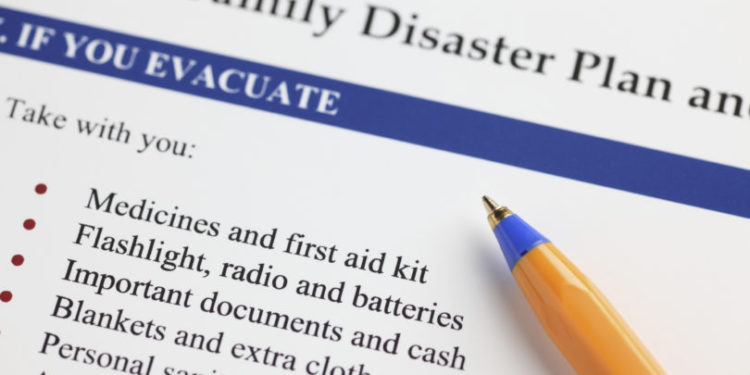Basseterre, St. Kitts, September 27, 2017 (SKNIS): During Wednesday’s (September 27) airing of “Working for You”, Director General of the St. Kitts-Nevis Red Cross, Natalie Fough, urged citizens to have a family disaster plan in place during the hurricane season.
“Each household should have a family disaster plan and every single [capable] person in their house should have his or her own chores,” said Mrs. Fough, noting that persons are given two to three days’ notice of a hurricane before it hits.
“Therefore, this person will be the person who will make sure that all the things outside, the chairs and everything that might fly away, are secured,” she explained. “Someone else may be tasked with ensuring the gas is turned off based on where it is. If it is out in the elements, make sure it is turned off. So, everybody should have his or her chores to do. So, we need a family disaster plan.”
Mrs. Fough said that the Red Cross not only advocates for a family disaster plan, but is going home to home to make sure that a disaster plan is in place. She explained that in order to get the message into the homes, the Red Cross will need to go into the schools to impart the knowledge. The students will then take that knowledge and relay them to their parents or guardians.
The director general said that there is a need to have a buddy system in place for communities and families.
“I think we are getting away from that and everyone is asking where the shelter is and not thinking about ‘Okay, I think my house can withstand whatever and my next door neighbor, she or he’s more vulnerable, so they can stay with me for the night’,” she explained. “That kind of buddy system, we are getting away from it.”
In addition to the buddy system, family members should also take care of their own, said Mrs. Fough.
“We have quite a lot of vulnerable persons out there who have relatives; they need to take care of them,” she emphasized. “They know the storm is coming; they know that the person lives alone–take them with you prior to the storm; make them feel comfortable that they are wanted, that they have relatives who are looking out for them. We need to get that back out there. We need to have that buddy system back up and having the family taking care of its members.”
Mrs. Fough said that after a disaster, the Red Cross can also help. They will go into communities and help those in need by way of an assessment.
“What we do in our initial assessment, is that we work with immediate needs at the same time,” she explained. “We might have tarpaulins and blankets. Those are the two things that we will take with us during that time because we know that some persons will need them immediately.”
The director general described an incident that occurred in the Saddlers and Mansion areas after a disaster, noting that persons may view the Red Cross as only rendering first aid.
“When we were doing work in the Saddlers and Mansion areas, we noticed that there were persons in there who had hands up in the air and all they thought of is that they don’t know where else to go. We drove by and we gave them some tarpaulin and their faces changed. They figured that they weren’t looking at Red Cross to give (them) this, (they) were looking at Red Cross for just first aid,” she said. “Yes, these are things that we take around for our immediate assessment in what we call a rapid immediate assessment because we have to get things off within 24 hours. So, you have a 24 hours assessment and you have a 72 hours assessment. So, in our initial assessment that is what we do.”









